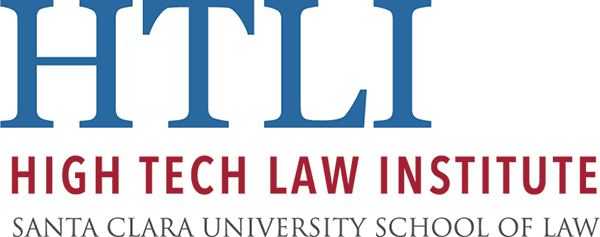What You Need To Succeed as a Product Counsel: IHCI Day 3
By Stella Collet
As an international LL.M student from France with an interest in IP and Corporate Law, I volunteered to take notes for the 2021 In-House-Counsel-Institute. The third day’s theme was about acquiring the necessary legal counseling skills in regards to “Products, Innovation and Digital Transformation”.
I was excited to join this event, considering that a company’s products are central to their success. Having benefited from a detailed guide about how to develop an in-house mindset on the first day of the In-House-Counsel-Institute, I was now about to dive into an equally detailed explanation about the skills required to succeed in counseling teams in product and innovation. My seat belt was fastened and I could not wait any longer!
Breakfast with the GC’s
Clint Smith (Discord), Marjorie Goux (Rodan & Fields), Joe Fitzgerald (Lacework) and Andrew Vu (Mercedes Benz), all highly successful Chief Legal Officer or General Counsels, joined us to share what it takes to be a successful in-house product counsel. They discussed many qualities a Product Counsel needs, such as the ability to understand the law and get up to speed with hot topics surrounding the company’s products and technology, as well as the importance of brainstorming with the teams to reach the best outcome possible for the business’ products.
“Product counsel cannot eliminate all the risks”, says Joe Fitzgerald. Trying to eliminate all legal risks can have serious business and financial implications The best product counsels take a balanced approach between business goals and legal requirements. Excessive precautions like requiring too many contracts or interpreting regulations extremely conversatively may completely shield a company from liability, but cannot be at the expense of profitability, efforts to scale and/or competitive advantage.
Substantive – Product counsel panel
Following the Breakfast with the GC’s was a product panel composed of Jennifer Stefanski (SurveyMonkey), Stacy Chan (Druva), Brittany Cuthbert (Coinbase), moderated by Roxana Niktab (Amazon). Given their experience as Senior Counsel or Product Counsel, they reminded the audience that despite the role of a product counsel varying from company to company, they all share some common characteristics, such as being an issue spotter and figuring out the legal frameworks that apply to new product features.
One suggestion I found particularly useful was that a product counsel should understand the impact of the legal framework on a product. Beyond legal considerations are business goals. An inadequate legal framework can have disastrous consequences on a product, and thus on the company launching it. Therefore it is critical to remain aware of the business goals when applying a potential legal framework and related legal counseling.
Workshop – Design Thinking For Lawyers
The Institute then welcomed David J. F. Gross, Partner at Faegre Drinker Biddle & Reath LL, and Michael J. Kaufman, incoming Dean of Santa Clara Law, along with partners at Faegre Drinker Kate Razavi and Helen Chacon, who shared a brilliant method to help lawyers think critically.
The method, called “Design Thinking For Lawyers”, includes five elements:
- Clarity, which is to pause for a moment to determine the goal the company or team is trying to achieve;
- Empathy, which enables the lawyer to understand who the user of the product is and what they are looking for;
- Constraints, which the lawyer needs to identify early on to work within them;
- Brainstorming, which should always be done non-hierarchically ; and
- Prototyping, which helps manage expectations and the amount of money the company might lose.
There you have it: a method that successfully summarizes the highly complicated process of critical thinking in five clear steps. Also, what’s amazing about this method is that these five steps are really easy to comprehend and follow. At the end of the day, the speakers were kind enough to share with all attendees a copy of their firm’s book, “Design Thinking And Visual Advocacy For Lawyers’ “, which I will preciously keep for my own guidance.
Hot Topic – Software Development In The Wake of Google v. Oracle
Finally, Santa Clara Law Professor Tyler Ochoa discussed the impact of the U.S. Supreme Court decision of Google v. Oracle decided on April 5, 2021. Professor Ochoa concluded that this decision was an incentive to settle for both the potential copyright owner and infringer. Having a solid interest in IP law, I enjoyed Professor Ochoa’s explanation and opinion, reflecting on the fact that the U.S. Supreme Court reached a good end result. Although I agree with Professor Ochoa’s assessment that it should have held that the declaring code is not copyrightable, as computer programs are nothing more than a group of processes and should not be protectable under copyright.
During this session of the IHCI, I learned a lot about product counseling, and I am truly amazed by the diversity of responsibilities, practice areas and skills required to be successful in this role. A product counsel can never say “I have learned enough”, as she might counsel a wide variety of product groups and different products which may have extremely different legal challenges. The fast-paced evolution of crypto currency regulations and other legal challenges described by Brittany Cuthbert of Coinbase sounds thrilling, and left no doubt: product counsels are hard workers who are a crucial part of a company’s team and business.
Stella Collet is currently a candidate for an LL.M. in United States Law, with additional interests in Intellectual Property and Corporate Law at Santa Clara University School of Law.
